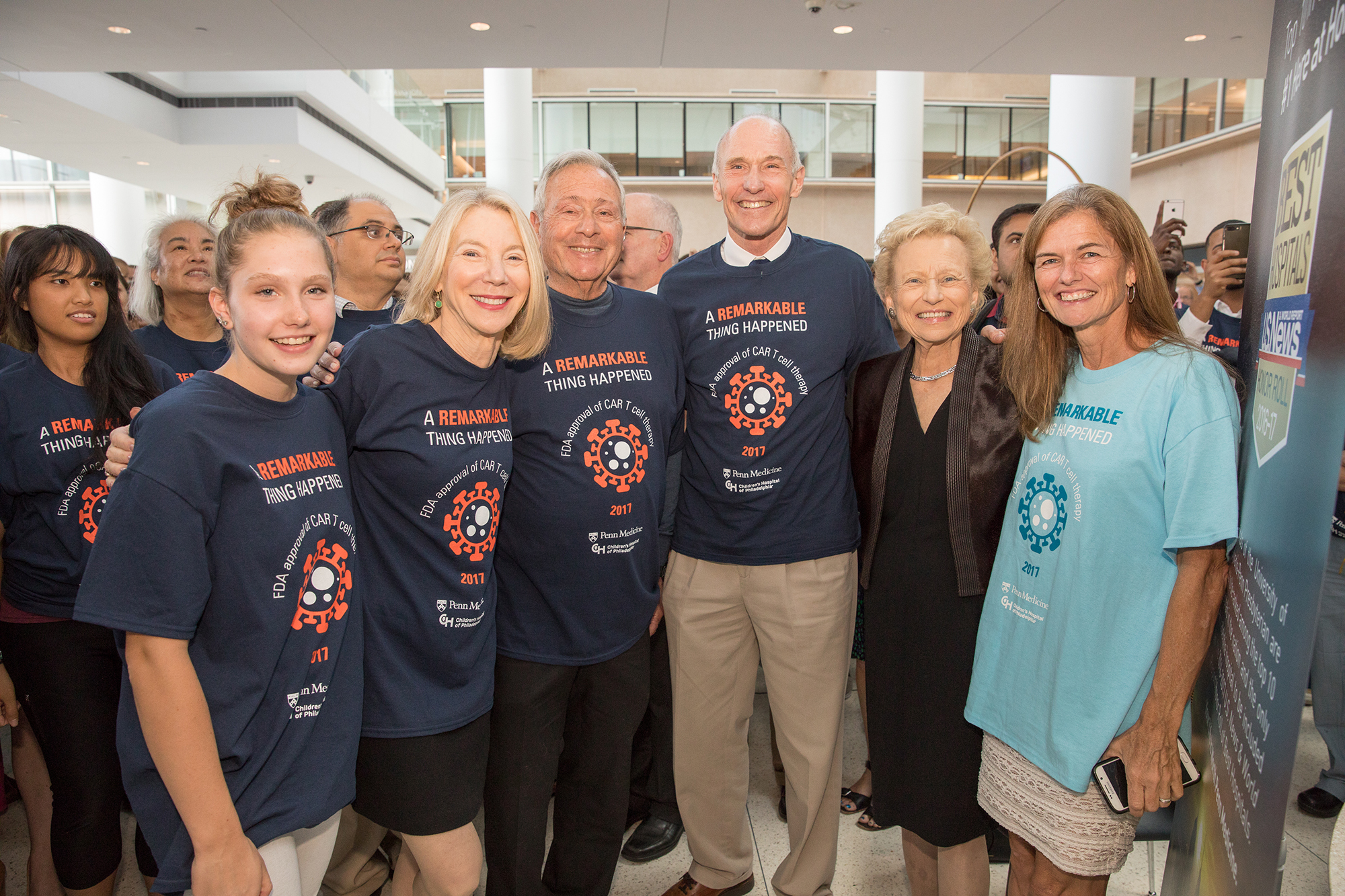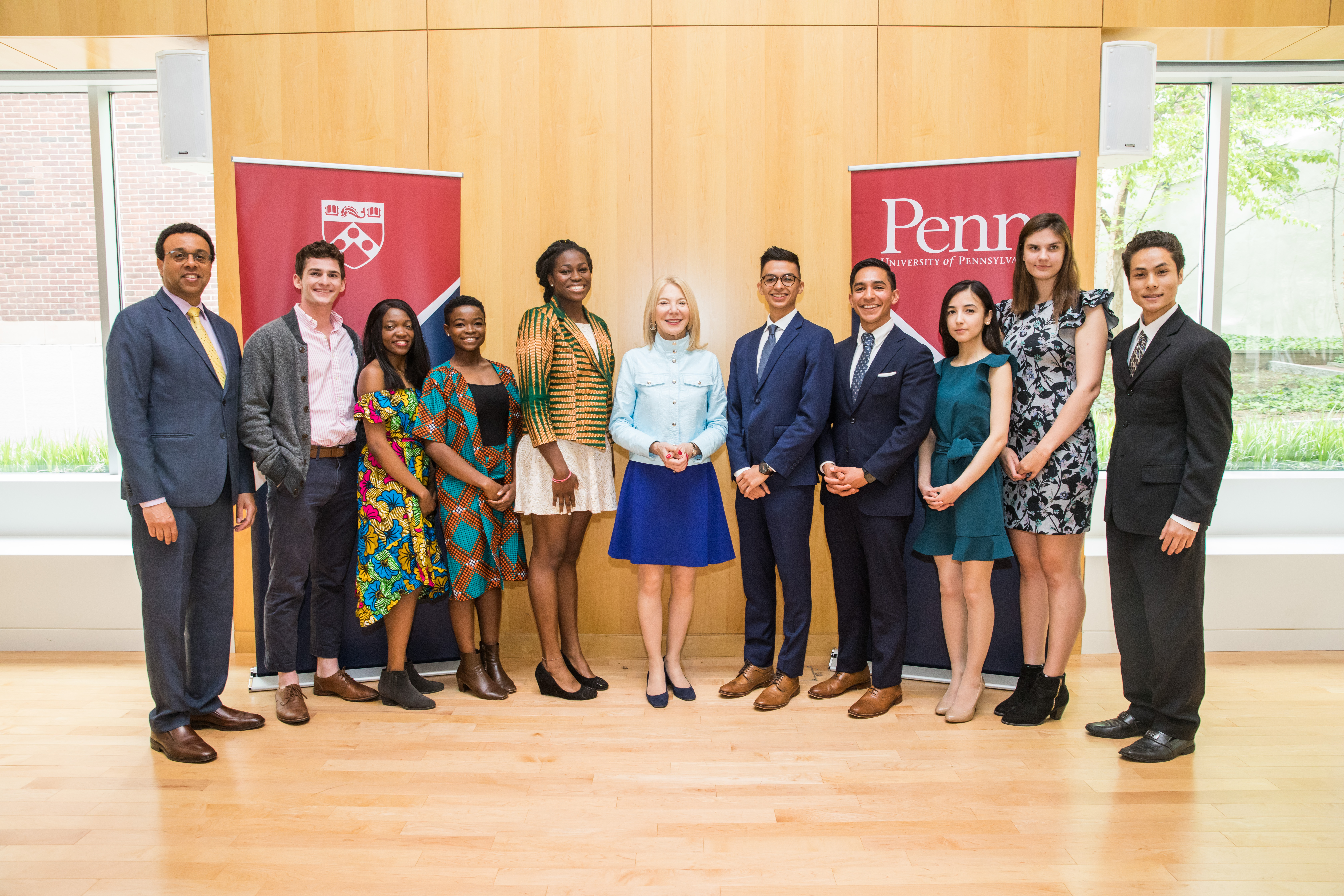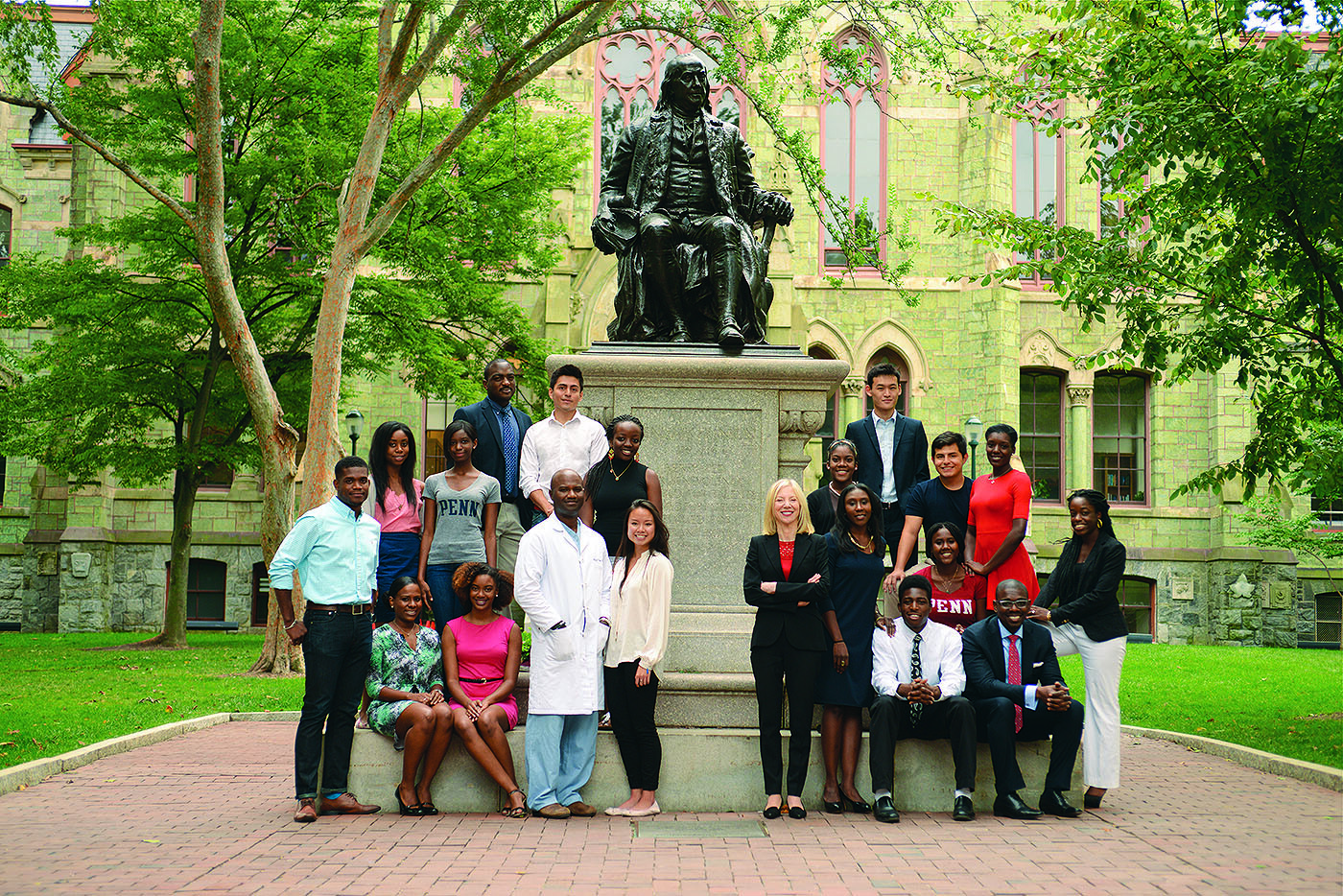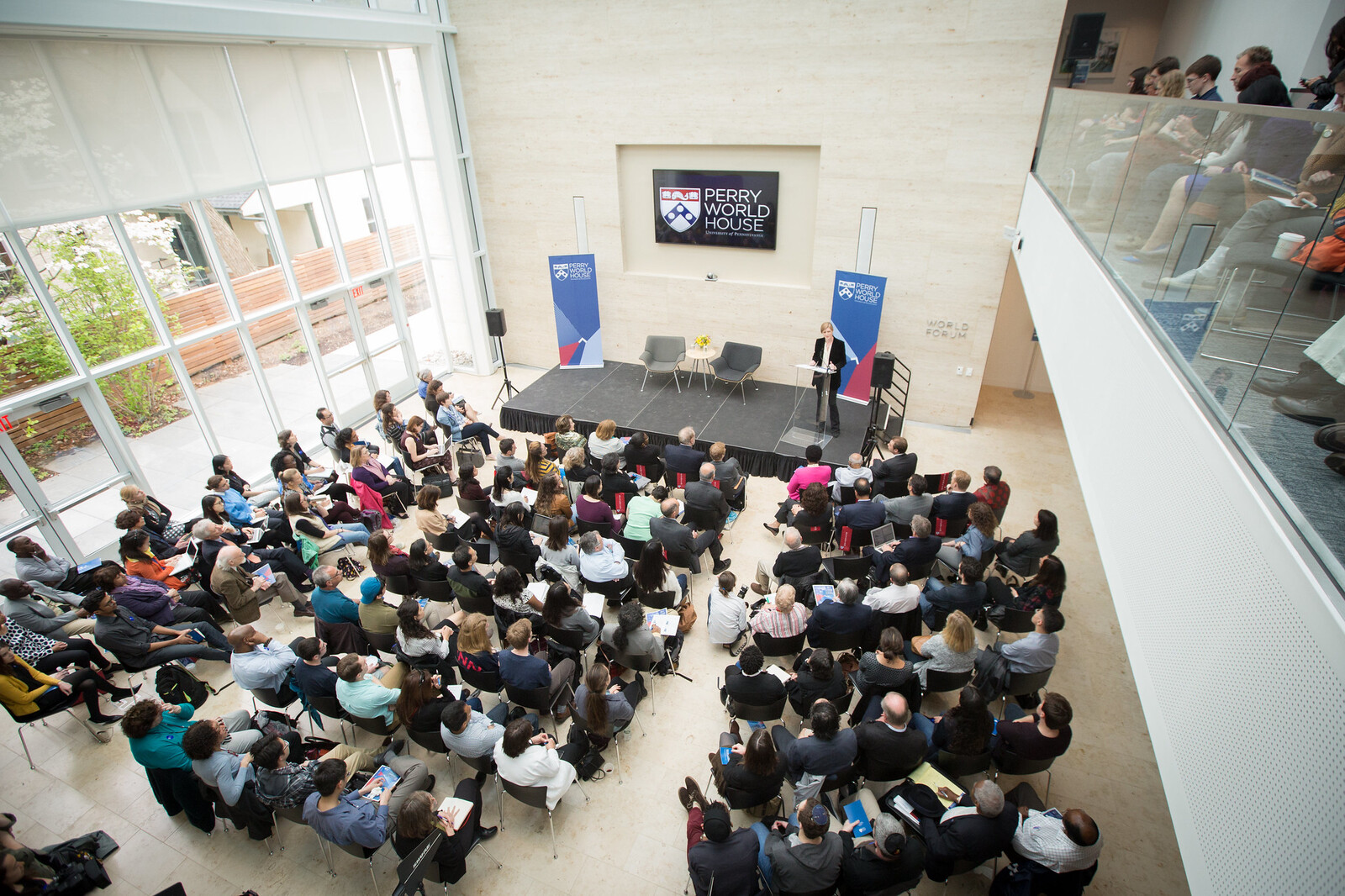
Opening doors, transforming lives
Extraordinary affordability and access
Within a year of her arrival, Gutmann jumpstarted a University-wide drive to maximize the innovative, life-changing discoveries emanating from Penn. She launched an unprecedented faculty initiative—Penn Integrates Knowledge University Professorships (PIK)—to leverage the University’s considerable strengths in the liberal arts and sciences and the professions. That effort has brought renowned multi-disciplinary scholars to Penn who thrive at the intersection of multiple fields with joint appointments across two or more schools. To date Penn has named 28 PIK Professors, each of whom shares a fundamental commitment to solving complex, real-world problems by working across disciplinary boundaries.
Gutmann herself models this commitment with acclaimed scholarship that addresses timely issues including the perils of political polarization and the role of compromise in democracy, the rights and responsibilities of democratic citizenship, and the benefits of equitable access to health care and education. During her presidency, she has published numerous articles and two books—the most recent on bioethics (co-authored with PIK Professor Jonathan Moreno) with an afterword on Pandemic Ethics. Gutmann remains one of the most widely cited political scientists and theorists of our time.

Gutmann celebrates in 2017 the first-ever FDA-approved gene treatment for cancer, created by innovators at Penn Medicine.
Gutmann spearheaded the creation of an innovation ecosystem for Penn, Philadelphia, and beyond by transforming technology transfer at Penn to be both more faculty- and industry-friendly. In the depths of the Great Recession, she had the foresight to purchase a 23-acre abandoned land parcel and lost no time in converting it into a vibrant hub for innovation that anchors Philadelphia’s Lower Schuylkill Innovation District. Gutmann branded it Pennovation Works. As importantly, she created the Penn Center for Innovation, which expertly aids Penn faculty in advancing paradigm-changing—and often life-saving—Penn discoveries. Life-saving historic innovations by Penn faculty have included CAR T therapy, the first-ever FDA-approved gene treatment for cancer, and the mRNA technology that lies at the heart of the Pfizer-BioNTech and Moderna COVID-19 vaccines. While annual commercialization agreements numbered in the single digits before Gutmann’s presidency, in fiscal year 2021, Penn executed 746 commercial agreements, generated more than $300 million in commercialization revenue, and garnered 142 patents. Today, Penn proudly acknowledges its ranking by Reuters as one of the most innovative universities in the world. Building off of this booming momentum, Gutmann announced in November 2021 that the University would invest $750 million in novel therapeutics and health-related initiatives; energy and sustainability; data engineering and science; and infrastructure to support physical science research.
28
$750 million
23
The spirit of innovation for Gutmann begins with Penn’s students. Most notable among many campus opportunities that advance a student culture of putting knowledge to work for good in the world are the President’s Engagement Prize and President’s Innovation Prize, and the more recently announced President’s Sustainability Prize. The $100,000 President’s Prizes—the largest of their kind in higher education—are awarded to fund student-initiated non-profit and for-profit enterprises with the greatest potential for transforming lives for the better. Recipients are graduating Penn seniors who immediately take a path less traveled or make one, and many have already won major national and international awards.
Gutmann’s Penn Compact also spearheaded increasing eminence and innovation among Penn’s faculty and leadership through greater inclusion. “The great challenge of moving the needle on diversity and inclusion within our institutions could not be more urgent,” Gutmann said. Under Penn’s Action Plan for Faculty Diversity and Excellence—a more than $100 million investment—the number of underrepresented racial minorities on the standing faculty grew by 53 percent and the number of women faculty grew by 33 percent at the same time as the faculty grew by 12 percent. Inspiring generous donor support across Penn’s 12 distinguished schools and its health system, Gutmann has created and named 75 Presidential and Presidential Distinguished Professors, prestigious appointments for recruiting and retaining diverse and eminent scholars.
53%
33%
Penn under Gutmann’s leadership has also strengthened efforts to advance racial equity and social justice within and beyond campus, causes for which Gutmann has been a lifelong advocate. Among many such initiatives was Gutmann’s creation of the Office of Social Equity and Community, led by Penn’s first-ever Vice President for Social Equity and Community. Penn’s Projects for Progress, announced in 2020, provide $100,000 grants for student-, staff-, and faculty-designed proposals to reduce systemic racism, achieve educational equity, and reduce health disparities. She also named Penn’s first Chief Diversity Officer. Gutmann was a lead sponsor of “Changing the National Conversation: Inclusion and Equity” that brought more than 100 presidents and provosts from across the country to Penn for candid and consequential conversations. Penn’s work to advance equity is evidence of Gutmann’s abiding belief that inclusion is essential to moving Penn from excellence to eminence.

Gutmann smiles alongside Provost Wendell Pritchett and a group of President’s Engagement Prize and President’s Innovation Prize winners, whose after-graduation projects have already shown tremendous impact locally, nationally, and globally.
Exploring President Amy Gutmann’s Transformative Tenure at Penn

Extraordinary affordability and access

Game-changing innovation and inclusion

Building a preeminent campus and empowering community

A revolutionary University leading for good